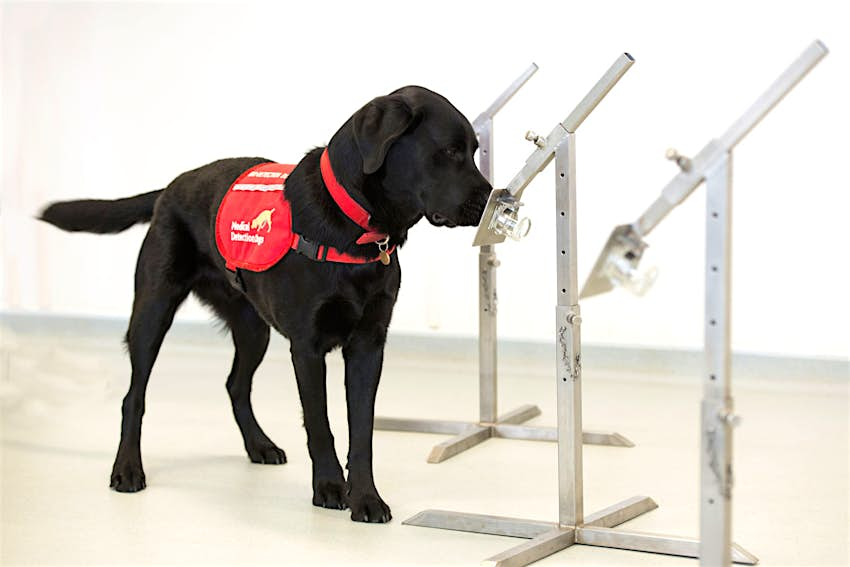Specially-trained dogs capable of sniffing out coronavirus infections in passengers have been deployed in Dubai airports.
All passengers arriving into the United Arab Emirates must present a negative COVID-19 result, from a medical test undertaken no more than 96 hours before their trip. But passengers from high-risk countries and those who display symptoms are often subject to secondary screening in the airport. Officials in Dubai International and Dubai World Central airports are now getting a helping hand with these health screenings from police sniffer dogs who are capable of detecting the virus in humans with 92% accuracy.
The non-invasive process sees officials from Dubai Health Authority take sweat samples from passengers. The sample is then placed in a pot with a funnel-like opening to be studied by the dogs at a safe distance. There is no direct contact between the dogs and the sample or the passenger. If the dog detects a positive result, the passenger is then taken for a nasal swab test.
Experiments have been carried out across Europe in recent months to see if odour detection dogs can identify COVID-19. The charity Medical Detection Dogs is working with the London School of Hygiene and Tropical Medicine to see whether their dogs – who are trained to detect malaria, cancer, Parkinson’s and bacterial infections through the sense of smell – can be re-trained to provide a rapid, non-invasive diagnosis of the virus.
 Dogs are trained to sniff samples in the laboratory in Milton Keynes © Medical Detection Dogs
Dogs are trained to sniff samples in the laboratory in Milton Keynes © Medical Detection Dogs
While in Germany researchers last month from the University of Veterinary Medicine Hanover trained army sniffer dogs to distinguish between samples of fluids taken from healthy patients and those infected with COVID-19. The dogs had an accurate detection rate of 94%, with 157 correct positive identifications, 792 correct reflections of non-infected samples and 33 incorrect results.
Their findings were published in the BMC Infectious Diseases journal with the team concluding that “in countries with limited access to diagnostic tests, detection dogs could then have the potential to be used for mass detection of infected people. Further work is necessary to better understand the potential and limitation of using scent dogs for the detection of viral respiratory diseases.”
This article originally appeared on our sister site, Lonely Planet.
